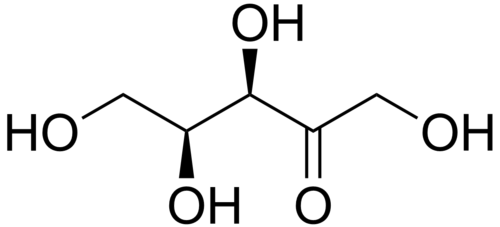What is pentosuria? It sounds a bit daunting doesn’t it? There’s not a lot of information out there about pentosuria, and it can often go overlooked or misdiagnosed. So we thought it would be good to take a quick minute and explain what pentosuria is, what effects it has on the body, and how to treat it.
So what is it? Pentosuria is simply the excretion of pentoses, which are sugar molecules with only five carbon atoms instead of the normal six, in the urine. Xylitol is one of these five carbon molecules. Five carbon sugars are found in the plant world where the standard building block is xylose.
According to Britannica.com, pentosuria is an inborn error of metabolism, characterized by the excessive urinary excretion of the sugar xylitol.
‘Inborn’ in this means not everyone has it; it’s a genetic problem found almost exclusively in persons of Ashkenazi Jewish descent.
‘Error of metabolism’ means that the enzymes needed to metabolize something are missing. In this case those missing are the ones needed to use five carbon sugars for energy production. In this hobbled pathway most five carbon sugars wind up as a form of xylose. This can get mistaken in screening lab tests as a sugar, like glucose, so people can get misdiagnosed as diabetic. And really that mistake is the only problem we know of with this condition. If you want more information there is a good one page summary at the British Medical Journal.
If you are not an Ashkenazi Jew, eating xylitol will not show up in your urine and it is not confused on any blood tests for glucose so there is no risk of being misdiagnosed as diabetic. Initially your body can’t deal with a lot of xylitol so it is not absorbed and causes loose watery stools and perhaps some cramping. If you persist and keep using it your body does adapt and pull out the enzymes needed to turn pentoses into energy, just like it does glucose. There is no reason for it to show up in your urine.
Even those with pentosuria can still use xylitol for the many health benefits that come along with it. Used as a nasal spray to keep the nose clean and minimize the allergic and infectious problems that begin there adds a minimal amount of xylitol to the body. Oral use for dental benefits adds much more, but none of this comes close to the amount we eat with a healthy fruit and vegetable diet.
Related Articles
Understanding the Importance of Xylitol Dental Health
Can xylitol play a role in your dental care program? People around the world are now using this all-natural sweetener. While it was discovered in the late 19th century, xylitol didn’t really begin making its way into the public consciousness...
Xylitol Animal Studies
Publication: IPCS Inchem Read original study here. XYLITOL Explanation Toxicological monographs were issued in 1977 and 1978 (see Annex I, Refs. 44 and 49). Since the previous evaluation, additional data have become available and are summarized...
Sugars and Sweeteners
The Canadian Diabetes Association compiled information on which sweeteners increase blood glucose levels, and which do not. View the tables here. Related...
Reasons to Use Xylitol Chewing Gum
The right xylitol chewing gum can help you boost your overall oral health. Beginning in Finland in the 1970s, researchers began studying the diverse benefits of xylitol and were, in fact, quite surprised by what xylitol had to offer. Xylitol...
The Effects of Equal Caloric Amounts of Xylitol, Sucrose, and Starch
The effects of equal caloric amounts of xylitol, sucrose and starch on insulin requirements and blood glucose levels in insulin-dependent diabetics. By Hassinger, Suer, Cordes, Krause, Beyer, and Baessler. Diabetologia, 1981 July, pages 37-40...
Dental Journals on Xylitol
Randomized Controlled Trial: A Randomized Controlled Clinical Trial Comparing A Remineralizing Paste with an Antibacterial Gel to Prevent Early Childhood Caries KA Plonka, ML Pukallus, TF Holcombe, AG Barnett… – Pediatric dentistry, 2013...






What are the alergic symptoms of Xylitol, can it cause severe pain affecting your whole body!
Allergic reactions are generally from protein substances and not simple carbohydrates like xylitol. If you eat a lot of it at one time it can cause major stomach cramps.